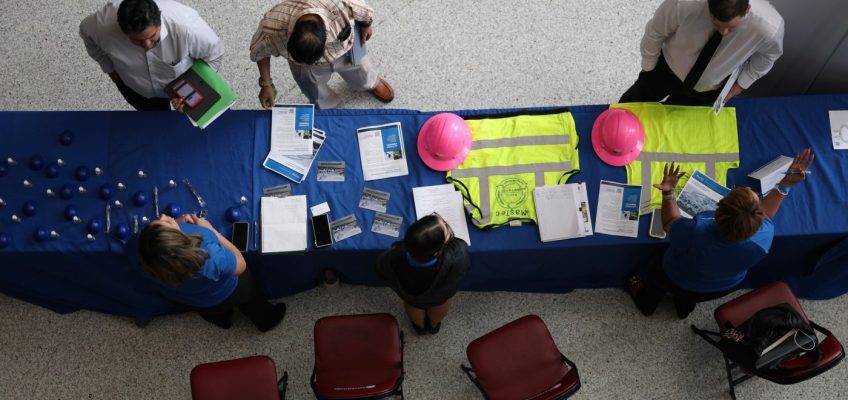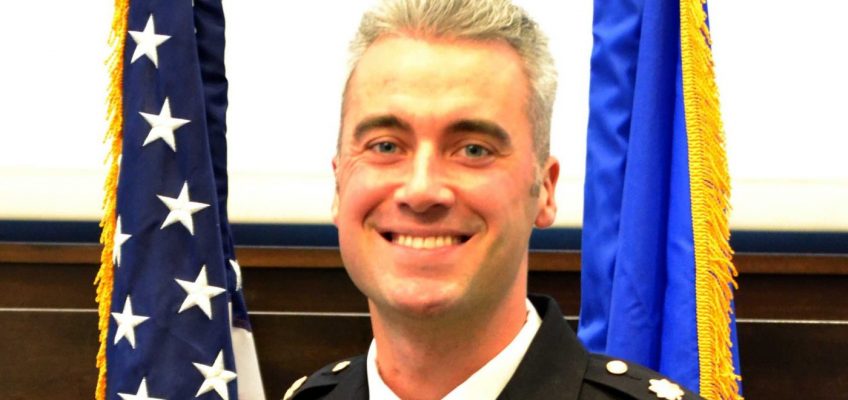U.S. companies shed payrolls in November by the most since early 2023, adding to concerns about a more pronounced weakening in the labor market.
Private-sector payrolls decreased by 32,000, according to ADP Research data released Wednesday. Payrolls have now fallen four times in the last six months. The median estimate in a Bloomberg survey of economists called for a 10,000 gain.
Wednesday’s weak ADP report risks heightening concerns of a more rapid deterioration in the labor market ahead of the Federal Reserve’s final policy meeting of the year next week. It could hold more sway than usual as one of the few up-to-date reports officials will have by then, as the shutdown delayed the government’s November jobs report.
Policymakers have been torn as to whether they’ll cut interest rates for a third straight meeting as they attempt to balance the slowdown in the job market with still-elevated inflation. Investors, however, widely expect the Fed to lower borrowing costs next week.
“I think it’s still probably going to be a pretty divided decision,” said Veronica Clark, an economist at Citigroup Inc. The expectation is there will be a rate cut, but the guidance will be more hawkish, she said, as the Fed will also provide fresh quarterly economic projections at the meeting.
The S&P 500 opened down and Treasury yields remained lower.
“Hiring has been choppy of late as employers weather cautious consumers and an uncertain macroeconomic environment,” Nela Richardson, chief economist at ADP and a contributor to Bloomberg Television, said in a statement. “And while November’s slowdown was broad-based, it was led by a pullback among small businesses.”
Companies with fewer than 50 employees shed 120,000 jobs, the report showed. That’s the largest one-month decline since May 2020. Establishments with 50 or more employees increased headcount.
Professional and business services led the decline in payrolls, followed by information and manufacturing. Hiring in education and health services increased.
Until recently, economists have largely said the labor market is in a state of low hiring and low firing. But a number of large companies like Apple Inc. and Verizon Communications Inc. have recently cut workers or announced plans to do so, which risks driving unemployment higher.
Related Articles
Longest US government shutdown cost Delta Air Lines $200 million
Bessent says White House may ‘veto’ Federal Reserve presidents
Wall Street drifts near its all-time high as most stocks rise
The Nerds share tips for memorable, budget-friendly gifts
Macy’s posts surprise profit with overhaul under new CEO resonating with shoppers
Wage growth
The ADP report, published in collaboration with the Stanford Digital Economy Lab, showed wage growth cooled. Workers who changed jobs saw a 6.3% increase in pay, the lowest since February 2021. Those who stayed put saw a 4.4% gain. ADP bases its findings on payrolls covering more than 26 million U.S. private-sector employees.
With the labor market top of mind for Fed officials, policymakers will also be keenly paying attention to other data sources. Initial applications for unemployment benefits are still relatively low, while employment declined slightly in the Fed’s latest Beige Book survey of regional business contacts.
The November jobs report from the Bureau of Labor Statistics, originally due Dec. 5, will now come out Dec. 16 as data collection was halted during the record-long shutdown. That report will also include nonfarm payrolls for October since BLS is skipping a full release for that month, as it couldn’t collect certain data retroactively.
In addition to the monthly reports, ADP recently started releasing separate data on a weekly basis. Payrolls declined in each of the last three readings.
With assistance from Julia Fanzeres and Chris Middleton.
©2025 Bloomberg L.P. Visit bloomberg.com. Distributed by Tribune Content Agency, LLC.




